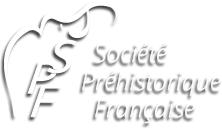 Actualités
Actualités 
The Scientific and Social programme of the 2020 Annual Meeting will continue at Virtual Annual Meeting.
Please follow a new website
http://www.e-a-a.org/eaa2020virtual
for more information.
Congrès, colloques, réunions
26-30 août 2020
Budapest

Session #476 - 26th Annual Meeting of the European Association of Archaeologists : Networking
Archaeology, we often claim, studies past humans, their actions, and interrelations. Yet, actually we excavate and describe static material remains of these past humans and their actions – artefacts and features – that we interpret in comparison with other findings and ethnographic analogies as reflections of social norms, behaviours, and choices. Our underlying views and concepts of the past very much shape what we make of the available archaeological information. Because our imaginations of past life weight in so heavily on our interpretations and because the actual evidence is often sparse, poorly dated and highly fragmented, a reflexive approach is important in these periods, yet the sensitivity of these underlying paradigms is better developed and more openly discussed in later prehistoric or historical periods.
In order to make our science more reflective, we aim to discuss in this session the following set of questions (open to expansion):
• How do we get from archaeological remains to people? Do we even get to people or rather to anonymous social formations?
• What concepts and theories are we using? How might received Palaeolithic/Mesolithic cultural taxonomies reflect recent political or other processes that have little to do with prehistoric reality? And do such received vocabularies structure our interpretations?
• Are we in need of more thorough and more critical history of science for the European Palaeolithic and Mesolithic archaeology?
• How to develop and install new concepts across different research practices?
• Is the borrowing of ideas and concepts from other disciplines and discursive contexts still useful and appropriate to answer big and long-standing question? What are the dangers of this practice and how self-determined needs Palaeolithic and Mesolithic research to be?
• Do we need to rethink our relationships to philosophy of science, STS and the emerging field of interdisciplinary science studies?
Organisers
Sonja Grimm
Shumon Hussain
Felix Riede


